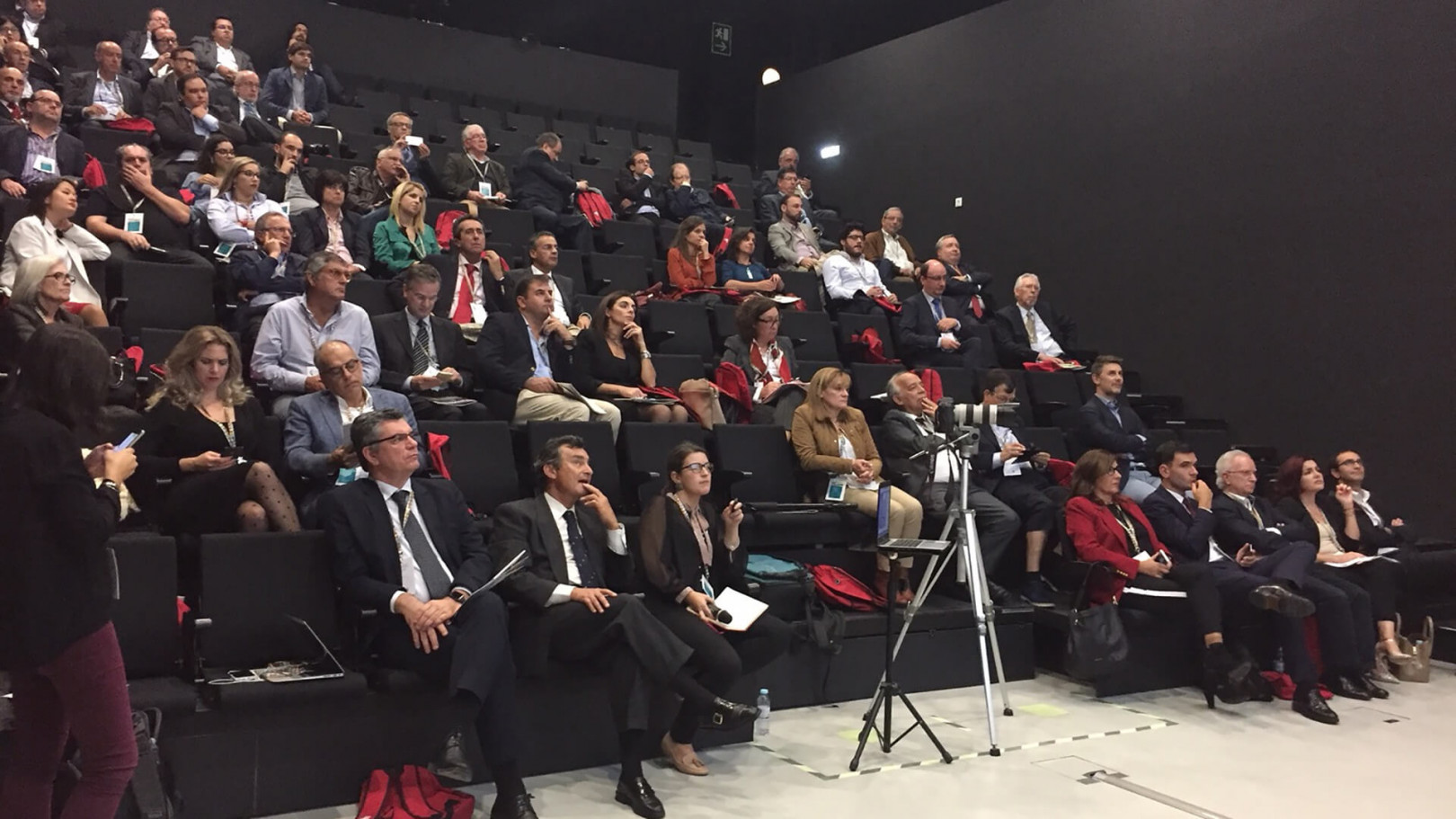INESC TEC at the Congress of the Portuguese Press Association
INESC TEC participated in the 13th Congress of the Portuguese Press Association, which took place at the University of Aveiro, from the 2nd to 4th of November. INESC TEC's participation took place within the TEC4Media initiative and had the collaboration of David Narciso and Rui Rodrigues, researchers at CSIG - Centre for Information Systems and Computer Graphics.
21st November 2017
During the technological exhibition, projects such as the MASSIVE Virtual Reality Laboratory were presented. MASSIVE sets itself apart because it studies the stimulation of the five senses in virtual reality applications, not only with regard to fundamental research, but also on an application level. There was still time for a small demonstration of AV 360 (Augmented Video 360º), a project funded by Google DNI which consists of supporting and stimulating innovation in digital journalism through the interactive creation of annotations in 360º videos by journalists.
Some of the themes in debate at the Congress were “Emergency measures for the Media”, “Distribution/Monetisation”, “General Regulation of Data Protection (EU)”, “Measuring Digital Audiences”, “Press Council” and “Enterprise and Professional Training”.
The dinner-debate on “State Incentives to the Media: what future?” had the participation of the Minister of Culture, Ambassador Luís Filipe Castro Mendes.
The Portuguese Press Association (API) is a non-profit association that represents companies related to the press in Portugal. As project and associative philosophy, AIP sets as intervention priority the execution of activities that may contribute directly or indirectly to the valorisation and to the importance of the press as a business activity and media channel.
The researchers mentioned in this news piece are associated with INESC TEC and UP-FEUP.


